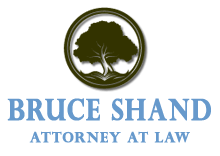The Utah Family Limited Partnership: Your Key To Control
FLPs offer multi-layered benefits by providing senior family members with several advantages—all without ceding control of the assets to junior family members.
Estate Planning is often a game of give and take. So what if you want to give away your assets, but not just yet?
As is so often the case, where there’s a need there’s a tool. A particularly powerful tool in this case is the Family Limited Partnership (FLP). An FLP can do double duty as a tool for asset protection as well as for estate planning.
Family Limited Partnerships have long been a useful tool for many, but Forbes recently offered a helpful perspective in an article titled “How To Protect Your Assets Without Giving Up Control.”
You see, the FLP represents a way to separate control from direct ownership of assets. Those in business will understand the benefit of indirect ownership quite clearly. Indirect ownership is the essence of forming an entity to structure a business – an LLC or a corporation, for example – which protects the owner(s) from liabilities, creditors and the like, and often vice versa.
A Family Limited Partnership is, in reality, a form of a Limited Partnership. The distinction? You just use it for family assets like a house, individual assets, and anything you’d want to control even as you protect it and slowly gift it away.
Well, how does that work?
Limited partnerships allow for different types of partnership stakes: general partnership interests are vested with all the control, while limited partnership interests just represent ownership without control. Even if the limited partnership interests outweigh the general partnership interests 99 to 1, the general interest retains control.
This arrangement has a business use, but in a family it means that the parents can own all of the general partnership interests while granting out limited interests to the Family Limited Partnership that owns all of the assets. The parents keep control, the children slowly/eventually take on ownership, and creditors or claimants have a more difficult time touching the assets.
As you might have guessed, there are even tax benefits when it comes to bequeathing or gifting the FLP assets.
There is a great deal of finesse required to make an FLP arrangement work. Consideration of such issues as “phantom income” should be carefully considered. The advice of an attorney or a CPA experienced in dealing with these issues should be consulted before creating such an entity. Nevertheless, in its basic form the benefits are clear. Once again, in determining the structure of the FLP and in actually setting it up, competent counsel can mean all of the difference between a fully balanced and solid plan, and a potential mess.
Reference: Forbes (March 18, 2014) “How To Protect Your Assets Without Giving Up Control”










Leave a Reply
Want to join the discussion?Feel free to contribute!